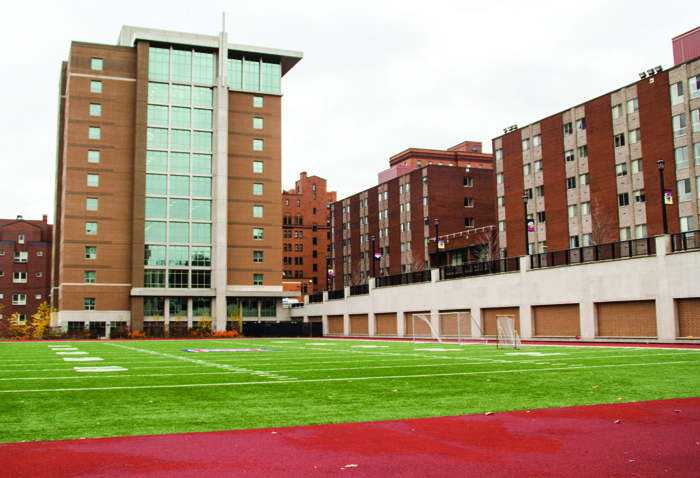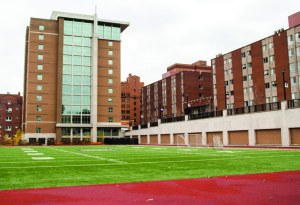

By Max Blechman | The Duquesne Duke
The Green Building Alliance’s Pittsburgh initiative, which seeks to reduce energy use, recently expanded to include the Bluff among its participating regions, but it is still unclear what steps Duquesne will take to reach the goals of the program.
Duquesne and UPMC Mercy both agreed to take part in the initiative, entitled the 2030 District. The 2030 District is a nationwide, privately owned program that seeks to partner with communities and property owners to provide plans to reduce energy use, water use and transportation emissions by at least 50 percent by the year 2030.
The 2030 District does not use binding mandates or requirements, but rather provides resources for its property owners. Participation level is left to the discretion of each participant, which means the plans the university will implement are still up in the air.
“The University has yet to decide if [participation will include] every building on our campus or a few buildings … but we are working with the 2030 staff,” executive director of facilities management Rod Dobish said. “We’re not there with exactly what our goals are because we’re not at that point yet.”
When the 2030 District first reached out to Duquesne to participate in the initiative when it first began in Pittsburgh, school officials were “cautious,” according to Dobish. The University was hesitant to lose some of its autonomy to the organization, fearing that the mandates would be binding.
“To be quite honest, at the beginning the University had some reservations as to the goals of the organizations and its mandates,” Dobish said. “It just seemed to us [at the time] that the goals were like mandates, not like targets.”
When talks began anew between the district and the University in summer 2014, Duquesne officials found the initiatives were more of goals as opposed to binding action.
“They have matured with some of the goals that they have, and the University decided it was a good time to get involved,” Dobish said. “They now have the right people involved … and we just thought it would be a good thing to join.”
School officials say that joining the more than 60 partners that participate in the initiative is a good move for the school. The school has a much publicized Co-Generation plant, which provides most of the power for the school. Additionally, the recently built Power Center and Des Places are both LEED certified buildings and have been part of construction efforts by the school to decrease energy usage.
“These steps have been taken because it’s the right thing to do for our campus and our community, and it sets an example for the next generation of leaders that we are educating,” Duquesne spokeswoman Bridget Fare said.




